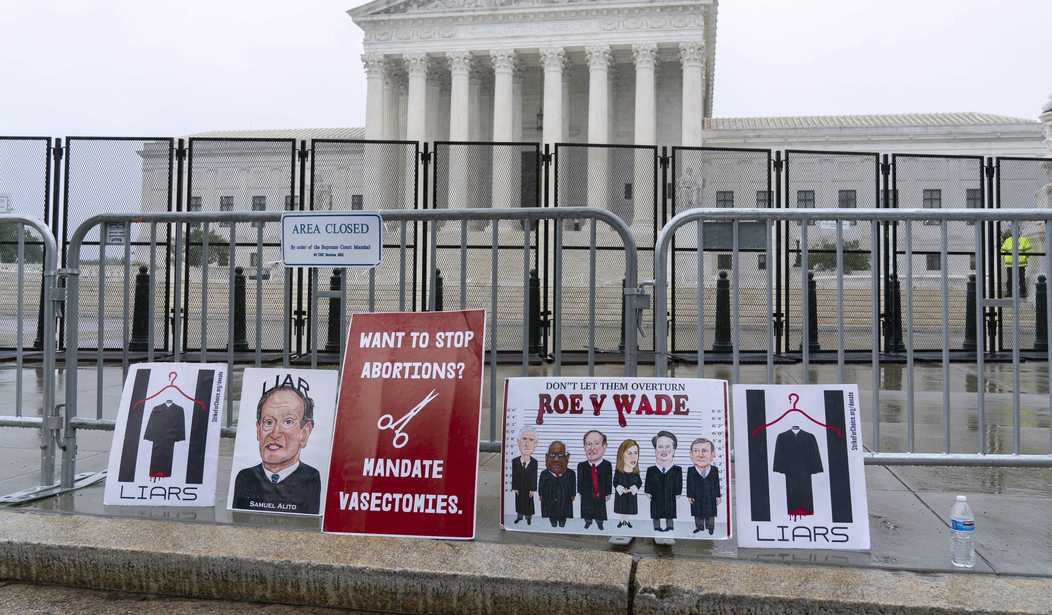(The opinions expressed in guest op-eds are those of the writer and do not necessarily represent the views of RedState.com.)
What does it mean for the Supreme Court to overturn Roe v. Wade? The abortion-loving states and a number of large corporations seek to promote abortion vacation travel from the abortion-opposed states and undercut state bans on abortion. After all, abortion is good for the economy, according to Treasury Secretary Janet Yellen and 150 economists in their amicus brief. They cite more favorable women’s participation in the labor force, education, and entrepreneurial and other activities. On this basis, the abortion states are adding to their economic development, while opposing states will reduce such development to their detriment. And everyone agrees that it is certainly good for the bottom line of Planned Parenthood.
In an opposing amicus brief written by 240 women scholars and professionals, they find that:
“Data regarding women’s participation in the labor market and entrepreneurial activities, as well as their educational accomplishments, professional engagement, and political participation, reveals virtually no consistent correlation with abortion rates or ratios. And, certainly, in the absence of correlation, there can be no causation. See Tagatz v. Marquette Univ., 861 F.2d 1040, 1044 (7th Cir. 1988). Instead, the data suggest some correlation between abortion, the feminization of poverty, and women’s declining levels of happiness, including fewer and less satisfying long-term committed relationships with partners and the birth of fewer children than women desire by the end of their reproductive lives.”
Catherine Pakaluk, an economics professor at Catholic University and one of the 240 scholars, says that the whole approach of the Yellen-led brief is incomplete, since it does not consider the costs and benefits for the group of babies (female and male) who were, and will be, aborted. Not one study considers this highly significant issue, which represents a basic flaw in the research. Indeed, Pakaluk says that economists who claim to provide conclusive evidence about the overall positive social or economic benefits of abortion should, “say upfront that what we’re about to tell you depends upon neglecting the costs to the unborn child because we don’t think his or her costs count.”
Abortion-loving states, along with numerous corporations, will continue to rely on faulty research to justify abortion. And they will give no attention to the cost paid by dead babies (63 million under Roe, half female) or the obvious loss to the economy of people denied productive lives to promote the alleged benefits for women who live. They cannot acknowledge the truth, either economic or moral, under the watchful eyes of the anti-Christian left.
Justice Brett Kavanaugh, in his concurrence revoking Roe, says that the Constitution is neutral on abortion, neither for nor against. Therefore, the Supreme Court had no basis for Roe and has no basis for any opinion on abortion, except to overturn Roe and allow the states to decide about abortion. Such a position paves the way for overturning other decisions of the court which have no basis in the Constitution. However, there is a cost to pay for this door opener. Essentially, the Court is allowing the states to do their best or worst on abortion. And some states will really do their worst, right up to allowing infanticide.
In a previous article, I argued that the Court should not revoke Roe. That in the interests of saving lives, the court should say that abortion is only allowed when the mother is in imminent danger of losing her life. Such justification required to be stringently proven with felony prosecutions in the offing for subterfuge. Such a rule would result in a hundred or so abortions a year. But such a decision, however good at saving lives, would have been a capitulation to the living Constitution fraud and in violation of Kavanaugh’s clear legal reasoning.
To the extent that the positive benefits of abortion are not supported, the basis for abortion is sharply undercut. Unfortunately, economics is not the only factor in play. Abortion is a key, if not the fundamental key, underlying radical feminism. It has cult status, and no amount of logic can sway the feminist leaders to reconsider. Essentially, to admit that they were wrong all these years would be a repudiation of their life’s work. They cannot even repudiate the Margaret Sanger racial underpinning of abortion. But, when the long-term leaders have passed on, there may be the possibility of a general change of heart among women and men. Likewise, churches that have based their support for abortion on improper economic research will have the opportunity to revert to fundamental Christian teaching.
Christopher Garbacz ([email protected]) is a policy advisor with The Heartland Institute and a former economics professor.













Join the conversation as a VIP Member